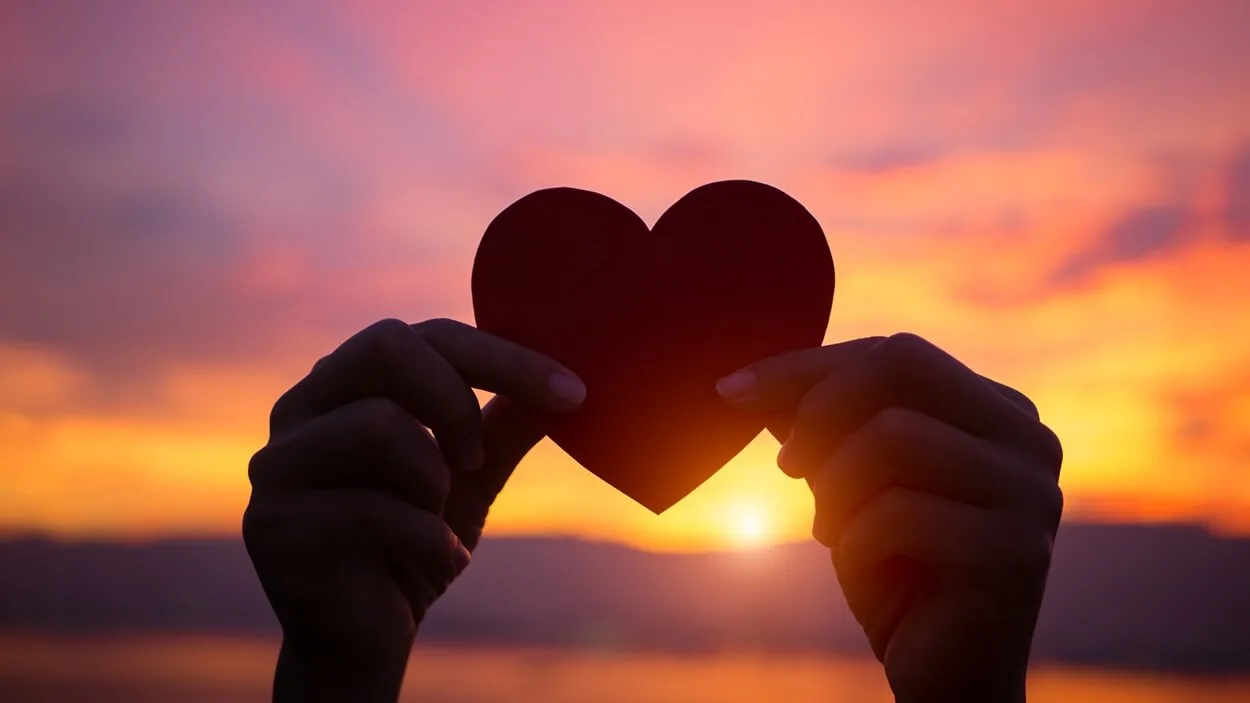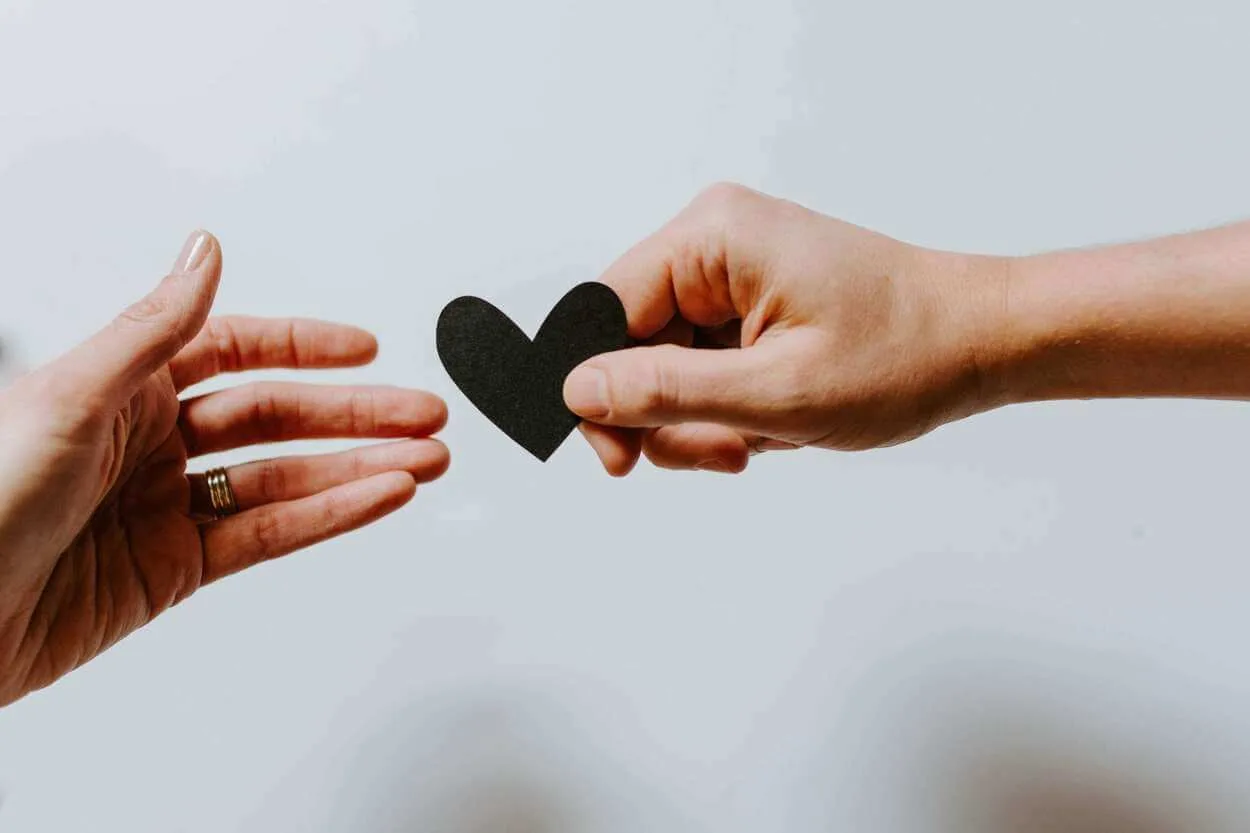Expressing your love may be hard. Whether to your significant other, friends, family, or someone else, you don’t want your affection to make the situation awkward.
What you say depends on what mood you want to set and your commitment level. Do you want a carefree and playful vibe or a heavier, more romantic atmosphere?
To help you decide, we will discuss the differences between “I love you” and “I heart you” in this article.
Romance through the ages
Throughout history, confessions of love were given through the most popular medium. The earliest confessions were scribbled on cave walls or whispered to the recipient.
Through time, writing and verbal expressions of love have remained popular with mankind since ancient times. However, the importance placed on love has changed over time.
In the era of cavemen, mankind’s top priority was spreading their children throughout the world to maximize the chances of survival for their families.
Sources indicate that by the 12th century, love started to become something to celebrate and think about.
People have always fallen in love with each other, but how they express their love and the scale of their love varies between cultures and even between time periods

Let’s take old Britain as an example. During the time of the Anglo-Saxon invaders, love meant love for one’s comrades and the desire to sacrifice oneself for the good of all.
A shift in cultural values and the rise of famous writers such as Shakespeare meant that romantic and familial love became more prevalent over the feeling of sacrifice and brotherhood.
This is because literature had become more accessible to the general population and was available to both men and women instead of only monks. This allowed people to express the importance of romantic love and gave birth to love poetry.
The Renaissance (1400 – 1700) was a notable period in European history. Love poetry gained particular prominence during this time and has stayed with us as it attempts to answer the timeless question: “What is love?”
While the love poetry of the Renaissance focused primarily on sexual or romantic love, love poetry in general, covers a variety of different topics:
- Unconditional Love
- Sexual Love
- Familial Love
- Self-Love
- Love for Friends
- Obsessive Love
Whether tragic or humorous, love poetry helps us try to express the feelings deep inside our hearts, feelings that get jumbled up when we try to express them verbally.
By allowing us to showcase the different types of love we feel for others, this type of poetry has retained its position as a suitable expression of love.
Other ways to express love
Sure, love poetry is a popular method, but it’s not by any means the only method. Not everyone is skilled enough with a pen (or quill) to write some awe-inspiring verses, so there’s always another way to show your love.
Each country has a different culture, so it also has ways of expressing love. In Japan, public displays of affection are highly frowned upon, so the people there have another way of expressing love: bento boxes!

In Latin American countries, love for one’s family is more important. People usually express their love by placing their family’s needs above theirs. In these cultures where family is given higher importance, a person is more likely to seek family for advice on serious issues as opposed to friends or mentors.
Finally, in Southern Africa, Zulu girls express their love for members of the opposite sex through special love letters designed with colored glass beads. The beads have different meanings depending on the combination of colors.
For example, using yellow, red, and black beads indicates that the sender feels their relationship with the receiver is fading.
But what should you do if you want to express your love in a lighthearted and playful way? Let’s find out.
If you’d like to express your love creatively, you can note some points from the following video:
But however you express it, be sure your partner can understand the meaning behind your love expression. Even something like giving a bouquet of flowers can mean the whole world to someone, so express your love while keeping your partner in mind.
The Difference
While both “I love you” and “I heart you” are phrases used to express love and affection, the way they’re perceived is very different.
Saying “I love you” to a person is a good indicator of your interest in them and your desire to become their partner. It’s a heavy commitment, and you don’t usually tell anyone except perhaps close family members.

You need to ensure that the mood, the location, and the food are perfect before you can say it. Remember that you managed to convey your feelings even if the other party doesn’t share them.
On the other hand, “I Heart You” is a lot more casual and relaxed. You can tell your friends, family members, and romantic interests. The heart is the symbol of love, so “I heart you” can be interpreted as “I like you” OR “I love you.”
It can be said when you’re almost in love with someone or don’t want to take the next step to becoming a lover.
“I love you” is more serious and sincere and requires a lot of planning before it can be said. In addition, you can’t casually say it to people you’re not romantically attracted to. “I heart you” is more casual and lighthearted, and you can say it to anyone you are close to.
Though, do keep in mind that “I heart you” can be sometimes perceived as childish or immature, so as an adult you’re better off with “I like you”.
Conclusion
- Love expressions vary based on feelings and commitment.
- Love’s meaning has changed across history.
- Poetry and traditions show love uniquely.
- Different cultures express love differently.
- “I love you” is serious and sincere.
- “I heart you” is casual and can be playful.
- Your choice depends on your commitment level.
- Sharing love often strengthens relationships.

